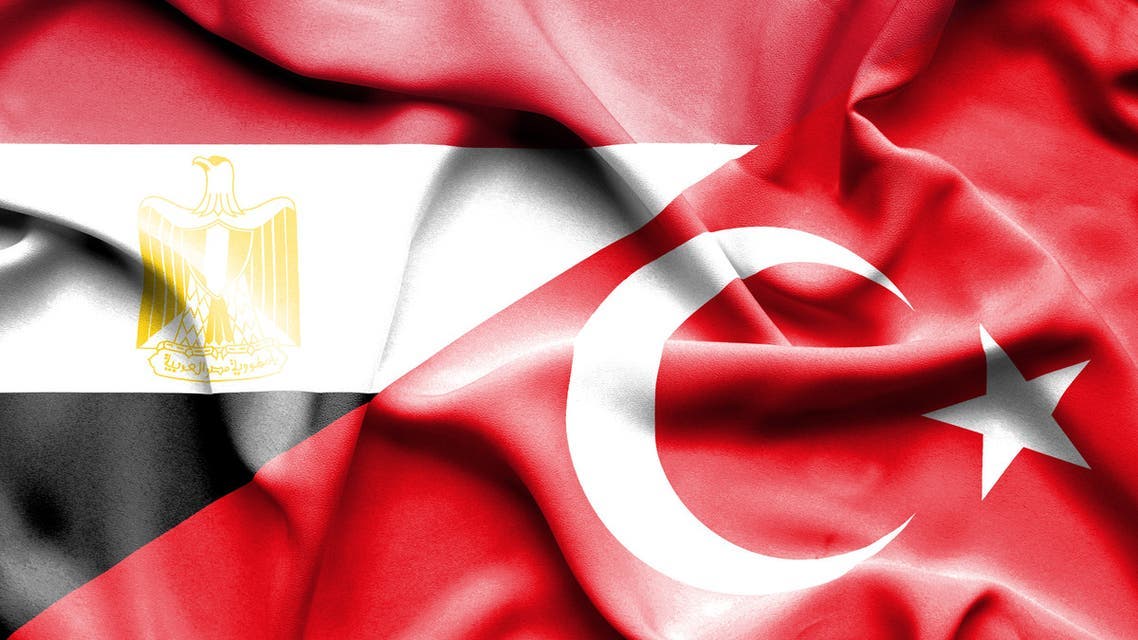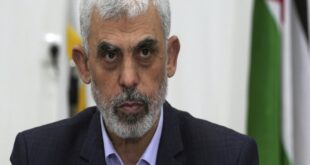
For Ankara, rapprochement with Cairo is a must. With former US President Donald Trump gone the tougher policy towards Turkey Joe Biden has adopted will force Recep Tayyip Erdogan to revive relations with old hostile countries.
The Turkish President has aimed to introduce warmth to the cold relations with the European Union and is attempting to open a new chapter with Egypt.
Relations in Cairo have deteriorated since the summer of 2013 after General Abdel Fattah el-Sisi ousted the Islamist President Mohammed Morsi. Egypt considered Ankara’s hosting of the Islamic Brotherhood leadership and providing it with a haven dangerous. Opening Egyptian opposition television networks deeply affected the bilateral relations too.
Turkey considered the Arab Spring that erupted in several Arab countries starting in Tunisia in 2010 as an opportunity for it to extend its influence to the region and the Eastern Mediterranean. It exploited the political vacuum and the turbulent transitional periods by supporting Arab Islamists, a move not welcomed by many Arabs and their leaders.
As Egypt’s relations with Saudi Arabia and the United Arab Emirates began to improve several years ago, Turkey sided with Qatar and increased collaboration in several countries, such as Syria, Libya and Yemen.
With the GCC overcoming their differences by reinitiating its political and economic ties with Doha, it is in Ankara’s best interests to review its policies. It must reach out to the Gulf States by divorcing the boycott policy that had negative repercussions for bilateral relations with these countries. Turkey’s image across the Arab world was tarnished.
The rivalry between the two nations is not limited to ideological differences and bilateral relations. Despite several complexities, strategic considerations are essential.
The two nations have a long history and culture of being deeply influential in the region. Rivalry increases when there are opposing viewpoints about regional issues.
Libya is the most recent and prominent one. Libyan territories are in Egypt’s backyard and it will challenge any Turkish troop deployment there. With Turks on its doorstep, Cairo’s antagonism will grow.

Turkey and Egypt
A bilateral agreement between the two states will have a positive effect to create a peaceful settlement in Libya.
In addition to these complicated issues, Turkey felt isolated when Egypt led, along with others, the Eastern Mediterranean Gas Forum (EMGF) which included: Cyprus, Israel, Greece, Jordan, the Palestinian Authority and Italy.
Demarcating maritime borders and allocating reserves of gas between these states is alarming for Ankara. This is a monetary fortune that Turkey will not surrender.
If it cannot reclaim its rights through a dispute, it could probably have a better chance through negotiation and rapprochement with Egypt, which is the major player in this.
Ironically, economic ties between the two countries remain active despite political tensions.
In 2018, they set a bilateral trade record with Turkish exports to Egypt amounting to $3.05 billion, an increase of 29.4 percent compared to 2017. Egyptian exports to Turkey reached $2.19 billion increasing 9.68 percent in 2017.
The free trade agreement between the two countries that was signed in 2005 remained functional despite all the differences. It is imaginable that such economic cooperation could reach new heights if relations are normalized.
In a positive gesture, Ankara has proposed to mediate between Egypt and Ethiopia about the Renaissance Dam which, in the last few months, has become a major source of tension between the two.
The Turkish Ministry of Foreign Affairs stated: “Turkey and Egypt share deep-rooted economic and social ties based on mutual historical heritage. Egypt is our major commercial partner in the African continent. Turkish and Egyptian businesspersons maintain close contact and continue to realize reciprocal visits.”
A deep revision of Turkish foreign policy is underway on all fronts with the aim of reducing antagonism with international and regional players. Strategies for consideration include: reviving relations with Egypt; opening ties with Greece; seeking reconciliation with the GCC countries; and, most importantly, pursuing a new policy with Washington.
Returning to the old zero-problem policy with the surrounding states is no longer feasible for Turkey. Gradually decreasing tensions in the region will prove beneficial for Ankara and address existing rivalries simultaneously.
Improving relations with Egypt will act as a catalyst to build bonds with other countries it is estranged from.
By Rami Rayess – alarabiya.net




 World Opinions Débats De Société, Questions, Opinions et Tribunes.. La Voix Des Sans-Voix | Alternative Média
World Opinions Débats De Société, Questions, Opinions et Tribunes.. La Voix Des Sans-Voix | Alternative Média






Way cool, some valid points! I appreciate you making this article available, the rest of the site is also high quality. Have a fun.